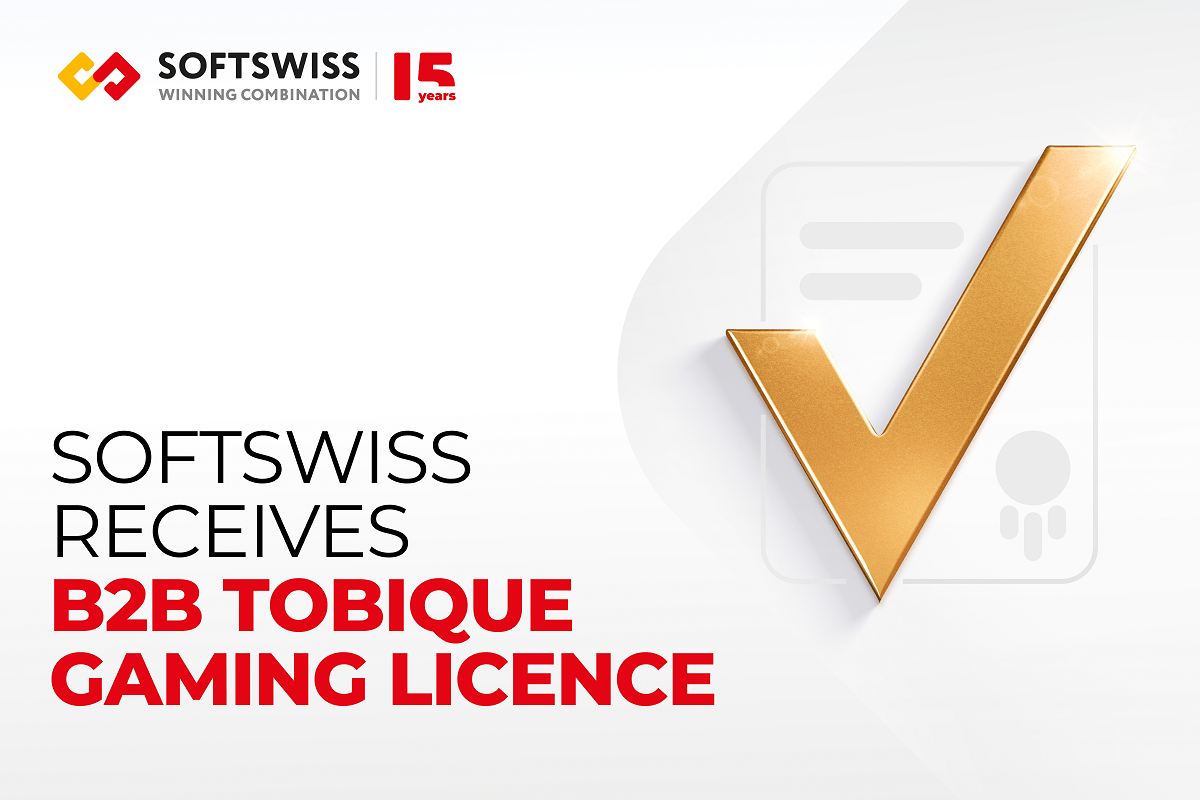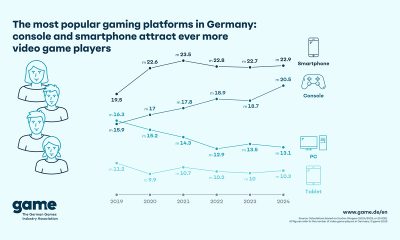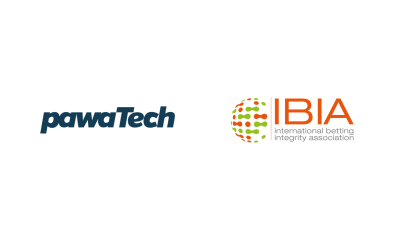Canada
SOFTSWISS Obtains Firstly Issued B2B Tobique Gaming Licence

SOFTSWISS, an iGaming software provider celebrating its 15th anniversary in 2024, has obtained the B2B Tobique Gaming Licence, the first ever issued in the jurisdiction. The Tobique Gaming Commission (TGC) and Differentia Licensing Advisory Group Limited (DLAG), a provider and facilitator to gaming companies for international gaming licences, authorised SOFTSWISS to engage in business activities for one year.
Located in western New Brunswick, Canada, the Tobique First Nation is a sovereign indigenous community issuing online gambling licences through the TGC under the Tobique Gaming Act of 2023. The licence, recognised as the B2B Tobique Gaming Licence, offers businesses the prospect of international operations, facilitating the establishment of a global footprint. The licence covers various categories of real money betting, including sports, casino games and lottery. Its significant advantages include the streamlined application process, reasonable price and quick acquisition.
Yuri Sharapa, Head of Country Projects at SOFTSWISS, comments: “Acquiring a new licence is a remarkable achievement for us, signifying our dedication to offering our clients a diverse range of options. We extend our gratitude to the Tobique Gaming Commission for their trust and stringent standards. We are proud to announce that one of the companies under the SOFTSWISS brand has become the first company to secure the B2B Tobique iGaming Licence.”
“The DLAG team is pleased to announce that the first Tobique Licence has been granted. The Licensee is under the tier-1 international brand, SOFTSWISS, in our industry, recognised for its leading products and services. These are exciting times for both the gaming world and Tobique!” adds Graham Martin, Chairman of DLAG.
SOFTSWISS supplies multiple operators under three international licences: MGA, CGA, and Kahnawake. Additionally, SOFTSWISS has several national licences and certifications, among which the recently obtained South African Licence through the acquisition of Turfsport, a leading South African provider of wagering software with 35 years of experience. Additionally, last year, as part of its strategy to enter regulated markets, the SOFTSWISS Casino Platform and the SOFTSWISS Sportsbook obtained GLI-19 and GLI-33 certifications, respectively.
About SOFTSWISS
SOFTSWISS is an international tech company supplying software solutions for managing iGaming projects. The expert team, which counts over 2,000 employees, is based in Malta, Poland and Georgia. SOFTSWISS holds a number of gaming licences and provides one-stop-shop iGaming software solutions. The company has a vast product portfolio, including the Casino Platform, Game Aggregator, the Affilka affiliate tracking platform, Sportsbook Platform, and Jackpot Aggregator. In 2013, SOFTSWISS was the first in the world to introduce a Bitcoin-optimised online casino solution.
The post SOFTSWISS Obtains Firstly Issued B2B Tobique Gaming Licence appeared first on European Gaming Industry News.
AGCO
AGCO Fines Great Canadian Casino Resort Toronto $350,000 for Serious Regulatory Violations Linked to Impromptu After-Party on Gaming Floor

The Alcohol and Gaming Commission of Ontario (AGCO) has issued monetary penalties totaling $350,000 against Great Canadian Casino Resort Toronto for multiple violations of provincial gaming standards. The penalties follow an impromptu after-party that was permitted to take place in the pre-dawn hours directly on the casino’s gaming floor.
On September 27, 2024, an electronic dance music event attended by thousands of people was hosted in the theatre adjacent to the casino at Great Canadian Casino Resort Toronto. The event was marked by widespread intoxication, disorderly behavior, and numerous criminal and medical incidents – both inside and outside the venue – including alleged assaults, drug overdoses, and acts of public indecency. Although paid duty officers were present, additional police and emergency services were required to manage the situation.
In the midst of this high-risk environment, casino management approved an unscheduled request by the performing artist to host an after-party on the active gaming floor. The artist and more than 400 guests were permitted onto the gaming floor where the artist was allowed to perform amidst operational table games and gaming machines – without any prior risk assessment or planning.
As a result, security personnel were unable to effectively control the casino floor, including witness reports that an attendee was seen climbing onto slot machines. Failure to maintain appropriate control compromises the security, safety, and integrity of the casino floor. Following the conclusion of the event, the operator failed to promptly report these incidents to the AGCO as required.
Based on the findings of its review, the AGCO’s Registrar has issued an Order of Monetary Penalty (OMP) totaling $350,000 against Great Canadian Casino Resort Toronto. These penalties address critical failures in their operations, incident reporting, employee training, and the management of disturbances.
A gaming operator served with an OMP has 15 days to appeal the Registrar’s decision to the Licence Appeal Tribunal (LAT), an adjudicative tribunal that is part of Tribunals Ontario and independent of the AGCO.
“Casino operators have a fundamental duty to control their gaming environment. Great Canadian Casino Resort Toronto’s lapses in this incident compromised the safety of patrons and the security and integrity of the gaming floor,” Dr. Karin Schnarr, Chief Executive Officer and Registrar of AGCO, said.
The post AGCO Fines Great Canadian Casino Resort Toronto $350,000 for Serious Regulatory Violations Linked to Impromptu After-Party on Gaming Floor appeared first on Gaming and Gambling Industry in the Americas.
Canada
IGT and Atlantic Lottery Sign Eight-Year Video Lottery Central System Technology Agreement

International Game Technology PLC announced that its subsidiary, IGT Canada Solutions ULC (hereinafter “IGT”), signed an eight-year agreement with Atlantic Lottery to supply its IntelligenEVO video lottery central system technology across Atlantic Canada. The agreement includes the option for multiple extensions and positions the Atlantic Lottery to become the first World Lottery Association (WLA)-affiliated lottery operator to deploy IGT’s next-generation central management system in a game-to-system (G2S) distributed market.
“By leveraging IGT’s IntelligenEVO technology, Atlantic Lottery will power its video lottery network with the industry’s best-in-class central system and position itself to maximize future contributions to good causes. As an organization that prioritizes system security and exceptional player experiences, Atlantic Lottery believes that IGT’s IntelliegnEVO solution will help generate high player satisfaction and optimal network performance,” said Michael MacKinnon, Atlantic Lottery VP, Product.
“As a long-time supplier to Atlantic Lottery, IGT looks forward to helping the Lottery achieve its growth and player engagement goals with our leading-edge IntelligenEVO video lottery central system. IGT’s IntelligenEVO is a scalable technology for the WLA market that is backed by decades of experience and operator feedback, and maximizes the benefits of real-time data, cloud-based technologies and in-depth analytics,” said David Flinn, IGT SVP Canada, EMEA and LATAM, Gaming Sales.
With peak system security, network availability and responsible gaming functionalities, IntelligenEVO is a reliable, scalable solution that can meet the needs of today and in the future. The solution will accelerate time-to-market and enables the Atlantic Lottery to benefit from the system’s suite of player-focused functionality. The technology’s G2S and open API design optimizes data collection and delivery and will enable Atlantic Lottery to customize their program for evolving player needs.
The post IGT and Atlantic Lottery Sign Eight-Year Video Lottery Central System Technology Agreement appeared first on Gaming and Gambling Industry in the Americas.
BetRivers
NetGaming Goes Live in Ontario with Rush Street Interactive via BetRivers Platform

NetGaming, a fast-growing online casino content supplier, is proud to announce its launch in Ontario with Rush Street Interactive, Inc., a leading online casino and sports betting company in the United States, Canada and Latin America. This strategic collaboration marks a significant milestone for NetGaming as it continues to expand its footprint across regulated North American markets.
As part of the launch, Ontario players on BetRivers can now enjoy a diverse portfolio of NetGaming titles, known for their high-quality graphics, immersive gameplay, and unique themes. Standout games such as Zeus’s Thunderbolt, Bison Gold, and Fireball Inferno are among the first to go live, with additional titles set to follow soon.
This partnership is just the beginning. NetGaming plans to extend its collaboration with Rush Street Interactive into Michigan, New Jersey, Pennsylvania, Delaware, and Mexico over the coming months.
Pallavi Deshmukh, CEO of NetGaming, commented: “We are thrilled to go live with Rush Street Interactive, a powerhouse operator with a strong presence and loyal player base. This launch marks a significant milestone in our
North American expansion strategy and underscores our commitment to delivering exceptional gaming experiences tailored to local player preferences across the region.”
Richard Schwartz, CEO of Rush Street Interactive, commented: “We are pleased to partner with NetGaming to bring innovative, premium games to our players in Ontario. This collaboration aligns with our strategy to offer world-class
entertainment through engaging, action-packed online casino games. We look forward to expanding this partnership into additional regulated markets in the months ahead.”
This strategic partnership highlights both companies’ dedication to providing high- quality, innovative, and responsible entertainment to players in regulated markets.
The post NetGaming Goes Live in Ontario with Rush Street Interactive via BetRivers Platform appeared first on Gaming and Gambling Industry in the Americas.
-

 Latest News7 days ago
Latest News7 days agoThe Most Popular Gaming Platforms in Germany: Console and Smartphone Attract Ever More Video Game Players
-

 Asia7 days ago
Asia7 days agoFIFA, NBA, UFC and More Sports Events Go Live – Crypto Sportsbook BETY Offers Global Sports Betting Coverage 2025
-

 Balkans7 days ago
Balkans7 days agoSYNOT Partners with Efbet in Bulgaria
-

 Australia6 days ago
Australia6 days agoVGCCC: Minors Exposed to Gambling at ALH Venues
-

 EveryMatrix Press Releases7 days ago
EveryMatrix Press Releases7 days agoSlotMatrix unleashes divine riches in Fortuna Gold where gods rule the reels
-

 Africa6 days ago
Africa6 days agopawaTech strengthens its integrity commitment with membership of the International Betting Integrity Association
-

 Brazil7 days ago
Brazil7 days agoTG Lab unveils new Brazil office to further cement position as market’s most localised platform
-

 Baltics7 days ago
Baltics7 days agoEstonian start-up vows to revolutionise iGaming customer support with AI
































